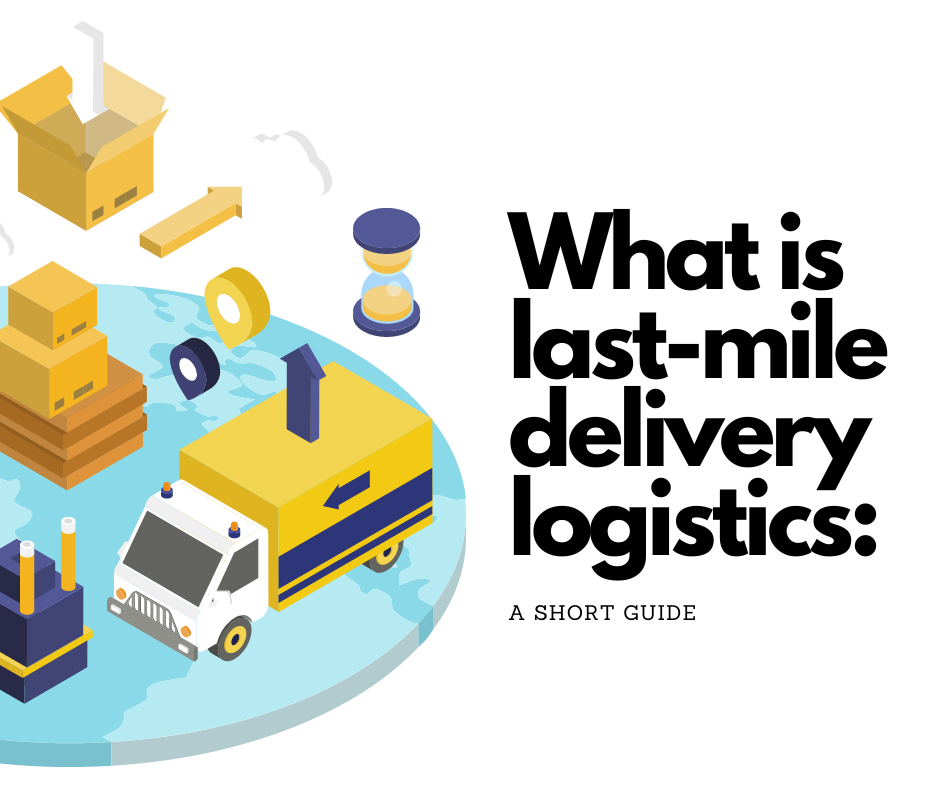What is last-mile delivery logistics: A short guide

As a logistics expert, I've come to understand that last-mile delivery logistics plays a vital role for businesses looking to streamline their supply chain operations to meet increasing customer demand. Last-mile logistics refers to the final stage of the logistics process, where goods or products are delivered to the customers' doorstep. In this short guide, I will explain what last-mile delivery logistics is, the associated challenges, and how businesses can optimize their last-mile delivery logistics process.
What is last-mile delivery logistics?
Last-mile delivery logistics is the final stage in the chain of logistics processes that get a product to its end destination. It refers to the transportation of goods or services from a nearby fulfillment center or warehouse to the final delivery address, be it a business, residence, or other location. This stage is the last and most important stage in the supply chain process as it is the final interface between the product and its end-user.
Challenges associated with last-mile delivery logistics:
Last-mile delivery logistics presents several challenges that can hinder a business's ability to deliver products to their customers. Some of these challenges include:
1. Productivity: Last-mile delivery logistics must achieve timely delivery of products, which can be a challenge, resulting in missed delivery deadlines.
2. Customer Service: Last-mile delivery logistics requires excellent customer service to handle customer queries, ensure smooth delivery, and create an impression that can add brand value to the business.
3. Traffic congestions: The last-mile delivery process can be impacted by transportation, typically in congested urban areas, leading to delivery delays.
4. Cost: Last-mile logistics represent the bulk of the costs associated with transportation, making profitability a significant challenge in the process.
5. Complex logistics network: Optimal routes, adequate warehousing facilities, and communication between stakeholders are essentials for an efficient last-mile delivery logistics process. Achieving such alignment among all these parties can be a challenge.
Optimizing Last-Mile Delivery Logistics:
To optimize last-mile delivery logistics, businesses can take several measures, including:
1. Use of technology: Employ technology that supports tracking of parcels, route optimization, and delivery notifications enhances clarity and real-time updates regarding the delivery.
2. Address Validation: Verify correct addresses for delivery and use a postal code verification tool to minimize errors and delivery time
3. Delivery Partners: Collaborate with third-party delivery companies that specialize in last-mile logistics, they typically have the expertise and ability to process bulk deliveries with a lower delivery time and cost.
4. Flexible delivery options: Offering customers the option for flexible delivery solutions like delivery at specific timing, or pick-up points, enhances delivery experience and elevates customer loyalty.
5. Route optimization: Optimize delivery routes to reduce transit time, carbon emissions, and the associated transportation costs.
6. Customer Experience: Create a personalized delivery experience that improves customer satisfaction, communicate regularly, and remains transparent on delivery status.
In conclusion, last-mile delivery logistics is the critical stage in the logistics process for businesses looking to meet customer demands efficiently. By understanding the challenges and implementing strategies for optimization, businesses can streamline their last-mile delivery logistics, and maintain competitive advantage.


